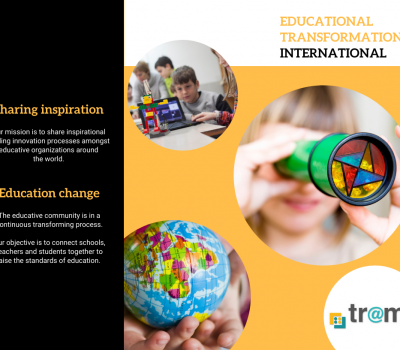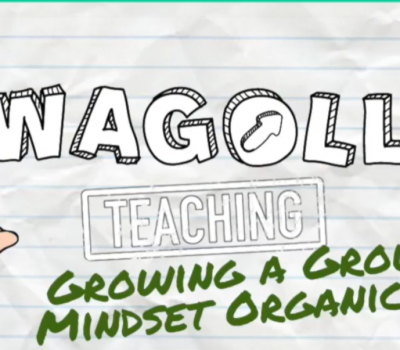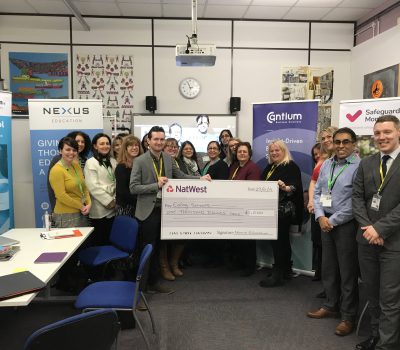


Our team sorts through all blog submissions to place them in the categories they fit the most - meaning it's never been simpler to gain advice and new knowledge for topics most important for you. This is why we have created this straight-forward guide to help you navigate our system.


And there you have it! Now your collection of blogs are catered to your chosen topics and are ready for you to explore. Plus, if you frequently return to the same categories you can bookmark your current URL and we will save your choices on return. Happy Reading!
When do mental health disabilities become an employer’s responsibility?

This question was considered by the Employment Appeals Tribunal (EAT) in the case of Lamb v The Garrard Academy. Lamb was an employee at the Garrard Academy, however she suffered from depression following alleged bullying at work and was off sick from 29th February 2012. Shortly afterwards she raised a grievance over two separate incidents relating to the Deputy Headteacher.
The school’s Head of HR undertook an investigation and their report upheld the grievance but was deemed to be an inadequate investigation by the Chief Executive. They did not then take account of the supporting documents.
On the 18th July 2012 Lamb met with the Chief Executive and Lamb confirmed that she was suffering from PTSD linked to childhood experiences. The Chief Executive said she would deal with the outstanding grievance but a month later wrote to Lamb to state that this was no longer the case.
On the 21st November 2012, the Occupational Health specialist suggested that Lamb’s depression had begun in September 2011. They also suggested that if the grievance issues were fully resolved that Lamb could recover fully.
A fresh investigation into the grievance was carried out, however following this, the grievance was rejected in January 2013.
Lamb subsequently brought a claim of disability discrimination including a claim of failure to make reasonable adjustments.
The Employment Appeal Tribunal found that the duty to make reasonable adjustments was triggered on the 18th July 2012 not the 21st November 2012. They found that from the meeting with the Chief Executive, the Academy knew of Lamb’s PTSD and that it was a long term problem going back to her experiences as a child. The date which an employer should be aware that an employee is disabled is important, as this triggers their duty to make reasonable adjustments.
The EAT also found that some of the proposed adjustments sought were reasonable.
There are a number of things that an Employer can learn from this.
An employer cannot rely on poor management practice to argue that it wasn’t aware of an employee’s disability and therefore that the duty to make reasonable adjustments was not triggered. In this case the EAT looked at when the Academy should realistically have known about Lamb’s disability. The EAT commented that had an Occupational Health referral been made in July 2012 ‘the overwhelming likelihood’ is that they would have concluded the impairment could well last until September 2012, which would have been 12 months since the beginning of the symptoms. Therefore when dealing with a sick employee, employers should make reasonable enquiries to find out whether an employee may be covered under the Equality Act 2010 for disability.
Additionally, employers should look to investigate and resolve grievances as quickly as possible. As was the case here, not resolving a grievance over an extended period of time can result in further problems. If the original grievance report had not been set aside or if whatever flaws it contained had been remedied by further investigation, shortly after discovery by the Chief Executive, it is conceivable that far fewer issues would have resulted.
For further information visit: https://sasdaniels.co.uk/sectors/education/.

The author

Read more

Read more

Read more

Read more

Read more

Read more

Read more

Read more


Are you looking for solutions? Let us help fund them! Nexus Education is a community of over 11,000 schools that come together to share best practise, ideas and CPD via online channels and free to attend events. Nexus also offers funding to all school groups in the UK via nexus-education.com


Established in 2011, One Education is a company at the heart of the education world, supporting over 600 schools and academies. Our unique appeal as a provider is in the breadth and synergy of the services we offer, supporting school leaders, teachers and support staff to achieve the best possible outcomes for their pupils and staff.

School Space is a social enterprise that has empowered schools for over 12 years through their profitable and hassle-free lettings services. So far, they’ve generated over £5 million in revenue for education, helping to connect over 200 schools with their local communities.


Unify is an online sales and marketing tool that allows users to create tailored personalised documents in moments.


There’s nothing special about the energy we sell. In fact, it’s exactly the same energy as all our competitors provide. But there is something special about the way we do it. Where others complicate the process, we simplify it. Where others confuse customers with hidden terms, we’re an open book. And where others do all they can to make as much money from their customers as possible, we do all we can to make as little. Everything we do, we do it differently. Our customers are a privilege. One we’ll never take advantage of.


Securus provide market-leading monitoring solutions to safeguard students on ALL devices both online and offline. We also offer a full monitoring service, where we carry out the monitoring on behalf of the school, freeing up valuable staff resources. From the smallest school to large MAT groups, Securus offers safeguarding protection for all!


Bodet Time offers dedicated solutions to education through lockdown alerts, class change systems, PA and synchronised clock systems. Improving time efficiency of the working and school day; ensuring safety through lockdown alerts; increasing communication with customised broadcast alerts.


Robotical makes Marty the Robot - a walking, dancing coding robot that makes programming fun and engaging for learners as young as 5. Our robots come with a full Learning Platform that has complete teaching resources, to make lesson planning a breeze.